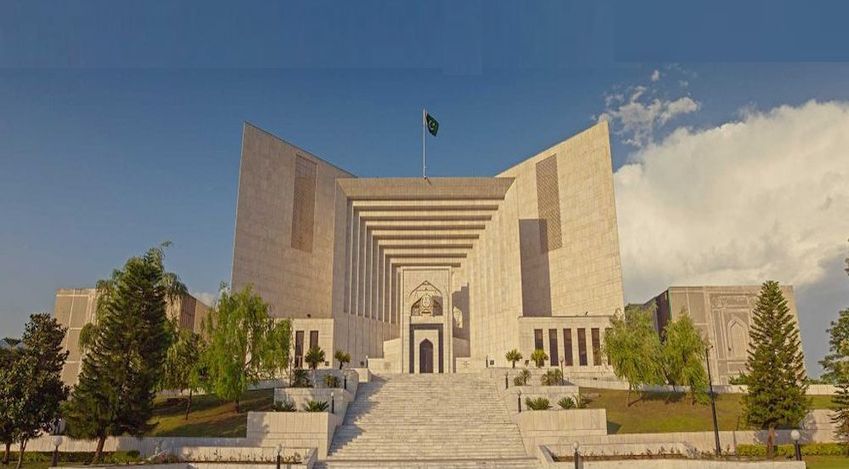The Process Server’s Statement was never recorded to verify that the defendants were avoiding service --- Supreme Court of Pakistan Dismisses Appeal over Procedural Irregularities in Summons Service
Islamabad 08-02-2025: The Supreme Court of Pakistan has dismissed a Civil Petition challenging the Peshawar High Court’s partial acceptance of a writ petition regarding a longstanding property dispute in Mardan. The Apex Court upheld the Lower Courts’ decisions, emphasizing the importance of adhering to procedural requirements in civil litigation.
The dispute centers on property measuring 24-Gerab located in Bakyana, Tehsil & District Mardan. The predecessor of the petitioners, had filed a Civil Suit claiming that her brother, illegally sold a portion of their late father’s estate beyond his rightful share. The suit sought to annul these property transactions and obtain an injunction against further alienation of the disputed property.
The Trial Court initially passed an ex parte decree in favor of predecessor of the petitioners in 2009 after the defendants failed to appear. However, Respondents No. 1 to 3 later filed an application to set aside the decree, citing improper service of summons. This application was accepted by the Trial Court in 2022, leading to a series of appeals by the Petitioners that culminated in the current Supreme Court of Pakistan ruling.
The Supreme Court of Pakistan decision hinged on several crucial legal principles:
- The Court found that the trial Court had not complied with the mandatory provisions of Order V, Rule 19 and Rule 20 of the Code of Civil Procedure, 1908 (CPC). The process server’s statement, required to verify that the defendants were avoiding service, was never recorded. Instead, the Court prematurely resorted to substituted service via newspaper publication, rendering the ex parte decree legally untenable.
- The Apex Court upheld the Peshawar High Court’s interpretation of Order IX, Rule 13 CPC, ruling that the 30-day limitation period for challenging an ex parte decree starts from the date the defendant gains knowledge of the decree if summons were not duly served. The Court referenced Mst. Afzal Begum Vs. Y.M.C.A. (PLD 1979 SC 18) and Government of Balochistan Vs. Nawabzada Mir Tariq Hussain Khan Magsi (2010 SCMR 115) to support its findings.
- Reaffirming the principle of Audi Alteram Partem (no person should be condemned unheard), the Court emphasized that procedural lapses leading to a party being unfairly excluded from proceedings constitute a violation of fundamental Justice. The Court cited Imtiaz Ahmad Vs. Ghulam Ali (PLD 1963 SC 382) in this context.
Invoking the maxim that no one should suffer due to the fault of the Court, the Supreme Court of Pakistan ruled that the procedural errors committed by the trial Court warranted the setting aside of the ex parte decree. The Court cited Faqir Muhammad Vs. Khursheed Bibi (2024 SCMR 107) to underline this legal principle.
Powered by Froala Editor








